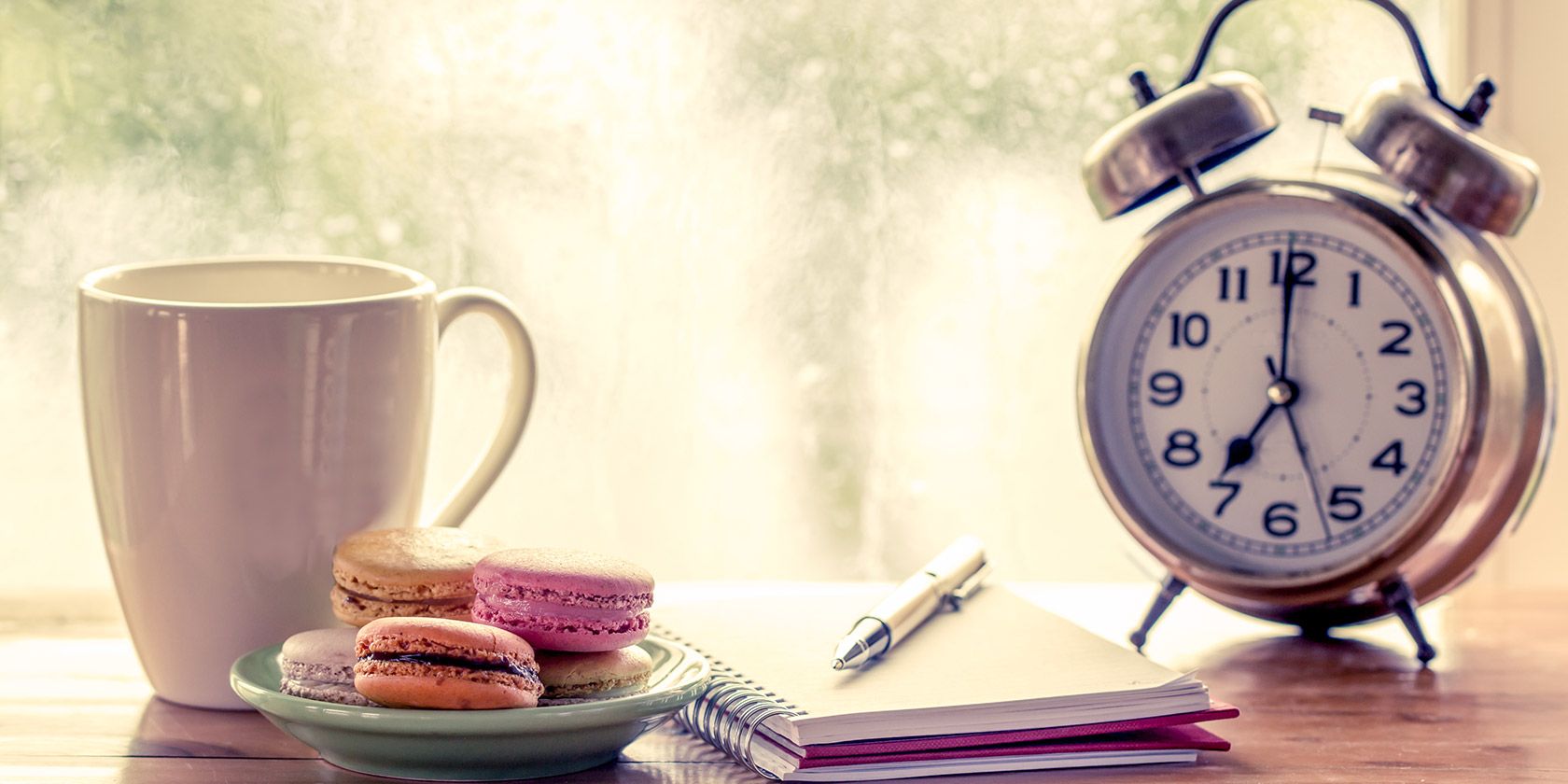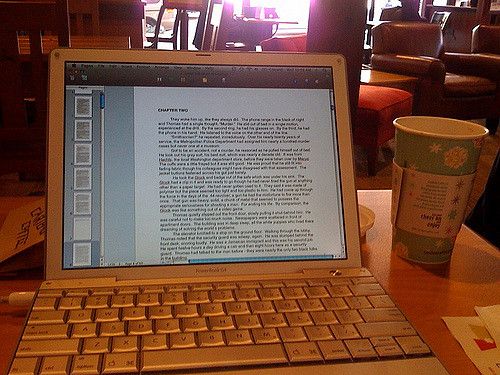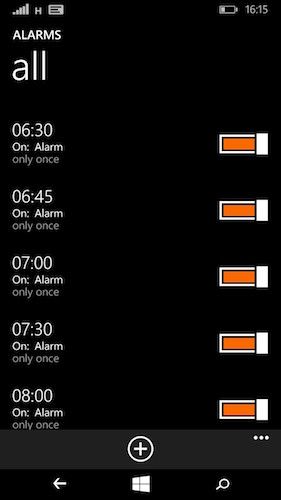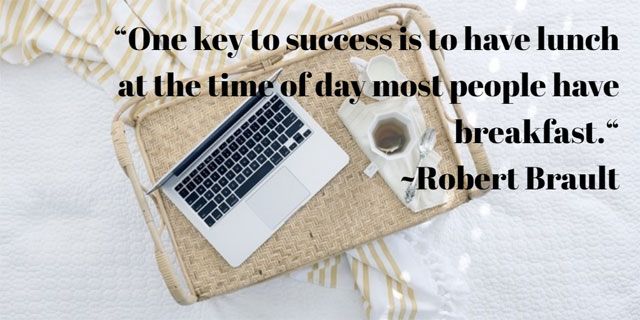This morning, I awoke to an orchestra of phones screeching simultaneously. I picked up the nearest handset and switched on the screen. It was 6:30 AM. I've been waking up at the same time for the past few months.
I crawled out of bed, and stumbled groggily downstairs towards the kitchen. My coffee maker was already filled with ground espresso and water. I switched it on, and waited for the coffee aromas to slowly coax myself to alertness. I knew today was going to be a productive day.
I wasn't always an early riser. For the longest time, I was adamant that I was not a morning person. Most technologists and developers, if you ask them, would probably say the same thing, and insist they are night owls.
In my own experiences, I've found that there are serious advantages to being a morning person. In the few months I've been getting up early, I've been able to accomplish more stuff, and drastically improve my work-life balance.
Here's why.
You'll Procrastinate Less, and Get into a Work Routine Easier
When you work from a computer, it's really easy to procrastinate your day away, especially when you're using the same machine for work as you do for play. It's for this reason why there's an entire cottage industry of plugins and tools that are designed to make you focus on your work, and not get distracted by Facebook and Reddit.
You can download special playlists and even subscribe to entire streaming services whose sole raison d'être is to lull you into focus. If things get especially desperate, you can install Chrome plugins that restrict what sites you visit, and when.
Personally speaking, I'm old-school. When I need to get stuff done, I open up my hosts file and remap my distractions to localhost. Bye-bye Reddit. Adios Twitter.
But while these tools might mitigate against procrastination, they do nothing to address the root cause of it. My theory is that procrastination is a result of a lack of routine.
If you work from home and have no set hours (like many freelance writers and developers, as well as college students), you essentially can start working on a task whenever you want. So, naturally, you leave everything to the last minute. You work when you're exhausted, so your work is exhausting.
At one point, this was the case with me. I would get up whenever my circadian rhythm told me to. I'd spend hours in a fugue, clicking through endless Reddit links. By the time I'd finally got to the work, hours had passed, and I had already started to get tired.
But now I have a routine, and everything is much easier.
I wake up at 6:30, and from then until five PM, I'm working. I don't trick myself into watching an episode of something on Netflix, and justify it by saying I'll finish my work later. I just get on with stuff.
The basic principle behind why having a routine is so effective is called time blocking. Rob Nightingale explained this beautifully. Essentially, by planning when you're going to work, and sticking to a schedule, you make yourself far more effective at actually getting stuff done. You're far less likely to stray from a task, because you've allocated time directly to it.
As an added bonus, by getting up in the morning, I'm able to maximize the amount of natural sunlight I get. Admittedly, that's not a lot -- I live in the UK after all. But any amount is good, especially when you consider that according to research from Oxford University, natural sunlight is directly linked to improved productivity.
The better light, the better sleep, the sharper you are.
Work Hours Are Called Work Hours for a Reason
One of the best advantages I've found from getting up early is that I'm less distracted by others.
At 6:30 AM, there's a palpable and wonderful silence. People are asleep. There are no interesting tweets to distract me. My Facebook timeline is still. By getting up before everyone else, I can have a couple of distraction-free hours, where I get a lot done. I use this time to catch up on email, and to plan the articles I want to write that day. It's glorious.
As a general rule, I've found that by aligning my work schedule with everyone else's, I'm less distracted during the day too.
But the advantages don't stop there. By waking up early, and having rigid working hours, I'm far less prone to burning out. Work feels less like a hard slog, and I'm able make time to do the things I enjoy, like playing video games and watching Netflix, and going to the gym. In short, I have a better work-life balance.
Discipline, Not Motivation
Discipline and motivation are two terms that are often confused with each other. But they couldn't be any more different.
Motivation is essentially wanting something. You can be motivated to teach yourself to code. You can be motivated to get more done. It doesn't mean you'll actually do it though.
Discipline is where you put the hard work in to make the things that you want happen. Discipline is spending hours doing programming exercises, until you finally grok the concept you got stuck with. It's where you ignore tempting distractions, and focus on the talk at hand.
Discipline is essentially putting up with the suck, in order to accomplish the things you want. It's a skill that you need to nurture. One of the best ways to do that is to simply do things you don't necessarily enjoy, but are ultimately good for you.
Things like getting up in the early hours of morning, so you can crack on with work.
There's another important key difference between motivation and discipline. Discipline is a skill which doesn't fade easily. It's for this reason why people who have done military service have a tendency to be efficient, effective people. While motivation ebbs and flows, self-restraint keeps it in balance.
It Gets Easier
I'm not going to lie to you. Getting into a routine where you wake up early isn't easy. Especially on those cold winter mornings, where all you want to do is lie in bed until the sun rises, and the central heating kicks in. But once you get into the habit of getting up early, you'll find that it'll get exponentially easier. It will eventually come naturally to you.
Until you reach that point, you may find that you'll have to literally force yourself out of bed. Of course, there are things you can do to push yourself out. One of which is to have as many alarms as possible set to wake you up.
Personally speaking, I have two cell phones and a Nexus tablet perpetually turned on, ready to wake me up at 6:30. If I miss that alarm, more will follow in intervals of 15 minutes. I just use the stock Android alarms, although there are more advanced third-party ones you can download.
Many people I know swear by the fiendishly-evil Puzzle Alarm Clock, which Erez Zuckerman reviewed in 2013.
You can also use your PC as an alarm clock. I recommend the awesome KuKuKlok. If you've got Windows 10, you can also ask Cortana to wake you up.
With enough perseverance, you can turn yourself into a productive early riser.
Tech Isn't Always the Answer to Getting Things Done
We can be quite dependent on technology as a tool for productivity. But often, the low-tech solutions are the best. By waking up early, and making simple lifestyle changes like getting more exercise and sunlight, I find I'm able to accomplish way more than I otherwise would.
Have you found that changing when you wake up has made you more productive? Or, are you still a determined night owl? I want to hear about it. Drop me a message in the comments below!
Image Credits: coffee cup and alarm clock by Pingpao via Shutterstock, Discipline (Ibai), My Work Environment (Joe Flood)







